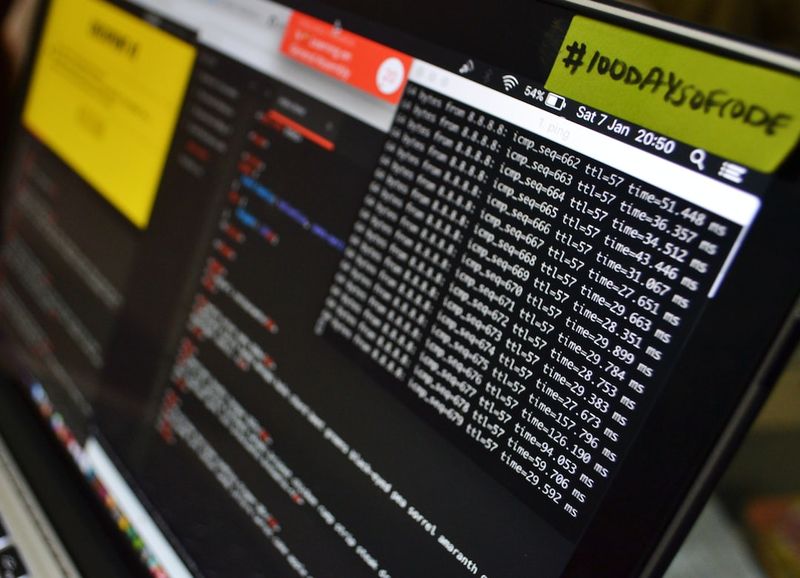Cybersecurity Burnout: A Time Bomb for Data Breaches
The Study and its Findings
In a new study conducted by Wakefield Research on behalf of Devo Technology, the cloud-native security analytics company, concerning trends regarding cybersecurity burnout have come to light. The study surveyed 200 IT security professionals from larger organizations, revealing some alarming statistics.
First and foremost, 83% of respondents admitted to making errors due to burnout that have directly led to data breaches. This finding alone highlights not only the detrimental impact of burnout on individuals but also the potential consequences it has on an organization’s security posture.
Furthermore, a startling number of IT security professionals, 85%, reported that they anticipate leaving their role due to burnout, with 24% planning to abandon the cybersecurity field entirely. This turnover could lead to additional costs for organizations, including financial damages from regulatory fines and lost consumer trust.
The survey also pointed out a disconnect between security leadership and their teams. While over half of the respondents reported increased anxiety or feelings of depression due to alert fatigue, they felt that stress and burnout were not taken seriously by their leaders. In fact, 82% of survey participants mentioned being told that stress and burnout are just a normal part of their job.
Overall, these findings underscore the urgent need for change in addressing cybersecurity burnout. Failure to address these issues could result in costly turnover, negative financial impacts, and a further erosion of consumer trust.
The People Problem and its Business Ramifications
Burnout is not solely a matter of personal well-being; it constitutes a significant business problem with long-lasting implications. The shortage of cybersecurity professionals, estimated at 3.5 million, exacerbates the issue. Organizations must realize that neglecting the well-being of their security teams can compromise their ability to safeguard data, protect their reputation, and maintain their bottom line.
When individuals experience burnout, their mental and physical health suffer, impairing their decision-making abilities and leading to critical errors. In an industry where the margin for error is minuscule, such mistakes can result in severe consequences, including data breaches. The risk of a breach becomes compounded when the majority of IT security professionals admit that stress levels at work directly compromise their ability to keep customer data safe.
This study serves as a necessary wake-up call for enterprise leaders. Caring for security teams is not merely a “nice thing” to do; rather, it is an ethical obligation that serves the interests of both the individuals on the frontlines and the broader business. Neglecting the well-being of security professionals not only puts them at risk but also the integrity and stability of the entire organization.
The Disconnect Between Leadership and Support
One of the most troubling findings of the study is the deep disconnect between security leadership and their teams. Despite the profound impact of stress and burnout on IT professionals, the survey revealed that security leaders largely disregard these issues and underestimate the toll they take on their teams.
Seventy-six percent of respondents believe that their IT leadership would not last one full day dealing with the number of alerts they manage, highlighting the intensity and pressure faced by security professionals. Additionally, 45% of IT professionals expressed dissatisfaction with the response of their leaders to employee burnout, desiring additional training, mentorship, and development opportunities.
Leadership must recognize that burnout cannot be dismissed as an inherent part of the job. Instead, they should prioritize the well-being of their teams, providing resources, solutions, and mental health support. Organizations that proactively invest in training, mentorship programs, and mental health resources for their security teams will not only foster healthier and happier individuals but also enhance their overall security posture.
Editorial: Redefining Security Culture
The prevalence of cybersecurity burnout highlighted in this study calls for a reevaluation of security culture, both within organizations and industry-wide. It is no longer sufficient or acceptable to view stress and burnout as inevitable and inconsequential. Instead, a shift is needed in how we value and prioritize the immense responsibility placed upon IT security professionals.
Organizations must take decisive action to address the factors contributing to burnout. This may include fostering a supportive work environment, implementing efficient alert management systems, providing ongoing training and skill development opportunities, and promoting work-life balance. Moreover, leaders must actively listen to and address the needs of their teams, realizing that their own stressors should not justify the disregard of their employees’ well-being.
On a broader scale, the industry as a whole must acknowledge that the shortage of cybersecurity professionals is not a sustainable situation. Efforts should be made to attract talented individuals to the field through educational programs, internships, and career development initiatives. Additionally, increased collaboration between academia, industry, and government entities is crucial to bridge the skills gap and ensure a robust cybersecurity workforce.
Advice: Prioritizing Well-being in the Digital Age
For IT security professionals facing burnout, it is essential to recognize and prioritize self-care. Here are some practical steps to maintain well-being in the highly demanding field of cybersecurity:
1. Seek Support:
Build a support network within your organization and industry. Connect with colleagues who understand the challenges you face and find mentors who can provide guidance and share experiences.
2. Establish Boundaries:
Create clear boundaries between work and personal life. Set aside time for activities that bring you joy, relaxation, and fulfillment.
3. Manage Workload:
Effectively manage your workload by using organizational tools, delegating tasks when possible, and prioritizing essential responsibilities. Communicate with your team and superiors about realistic expectations and deadlines.
4. Continuous Learning:
Invest in your professional growth by seeking out training opportunities, attending industry conferences, and staying informed about the latest advancements in the field. This will not only enhance your skills but also provide a sense of purpose and progress.
5. Self-reflection:
Regularly reflect on your own stress levels and mental well-being. Practice self-awareness and mindfulness techniques to manage stress effectively.
6. Advocate for Change:
Speak up about the importance of mental health and well-being in the cybersecurity community. Encourage your organization to invest in employee support programs, mental health resources, and training initiatives.
In conclusion, cybersecurity burnout is a ticking time bomb that threatens both the individuals working tirelessly to protect data and the organizations depending on their expertise. The findings of this study serve as a stark reminder of the urgent need to prioritize well-being, redefine security culture, and invest in the future of cybersecurity. Failure to take action leaves organizations vulnerable to costly breaches and undermines the industry’s ability to defend against evolving threats.

<< photo by Mohamed hamdi >>
The image is for illustrative purposes only and does not depict the actual situation.
You might want to read !
- Introducing Dig Security’s Enhanced DSPM Platform: Safeguarding Enterprise Data in On-Prem and File-Share Environments
- “FTC Nominees Call on Congress to Enact Comprehensive Data Privacy Legislation”
- Ensuring Robust Security with OneLayer’s Expanded Private Cellular Network Solutions for Operations and Asset Management
- Addressing the Cyber Alert Gap: Recommendations for Corporate Boards
- Confronting the Silent Battle: Cyber Professionals and the Urgent Mental Health Crisis in the Industry
- Navigating the Cloud: Insights from CISOs on Leadership Challenges in Cloud-based Services
- The Evolving Landscape of Cybersecurity and Compliance in the AI Era
- How to Safeguard Against Phishing Attacks and Data Breaches: Insights from Associated Press Stylebook Users
- Cybersecurity Crisis Unleashed: Lessons Learned from Paramount and Forever 21 Data Breaches
- The Urgency of Regulation: Tech Titans Unite to Back AI Oversight
- Unlocking Hidden Potential: The Cybersecurity Skills Gap and the Untapped Talent of Roadies & Gamers




